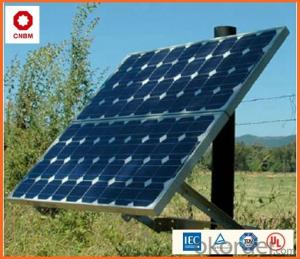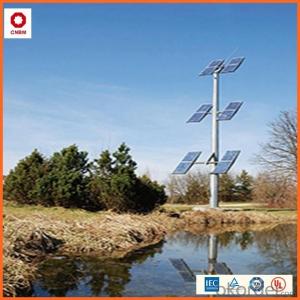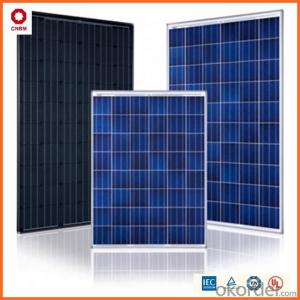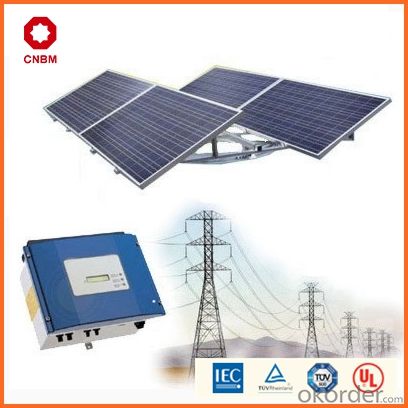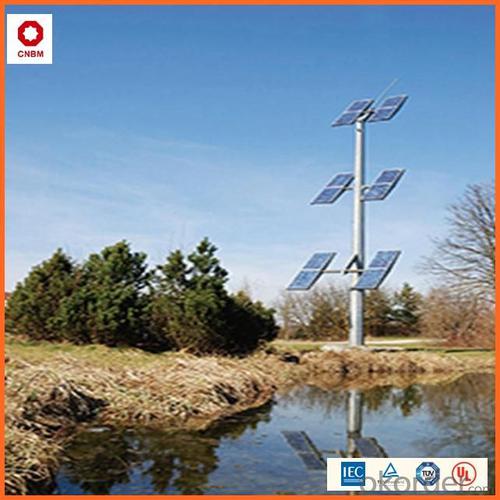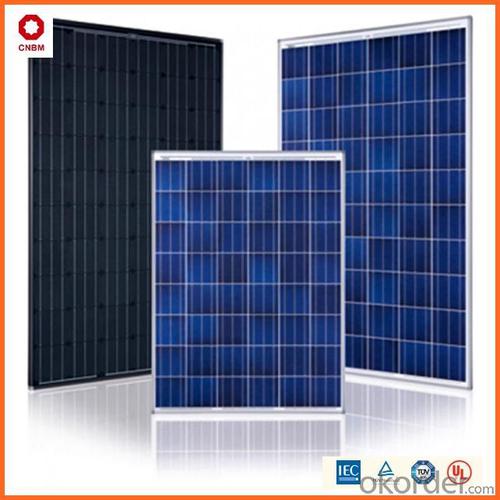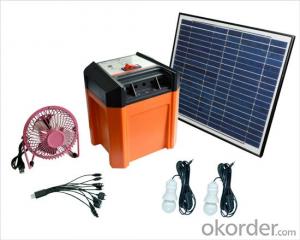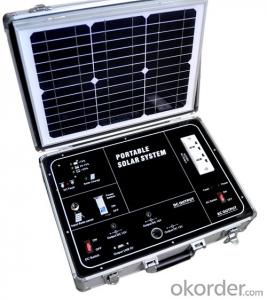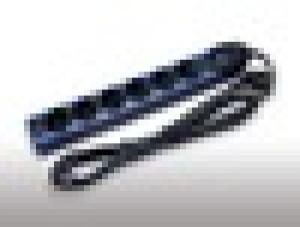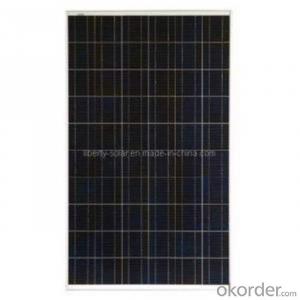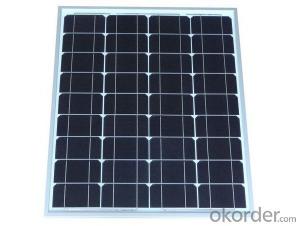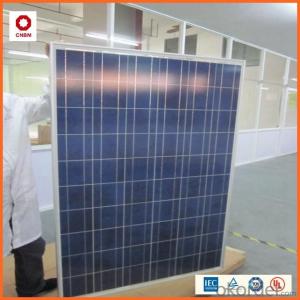85W Poly Off Grid Solar Energy Systems Small Solar Panel - Good Quality
- Loading Port:
- China main port
- Payment Terms:
- TT OR LC
- Min Order Qty:
- 1 watt
- Supply Capability:
- 10000000 watt/month
OKorder Service Pledge
OKorder Financial Service
You Might Also Like
Specification
Hot Sale !!! Quality and Safety of Small Poly Solar Panel 25~85w
1. Rigorous quality control meets the highest international standards.
2. High-transmissivity low-iron tempered glass, strong aluminium frame.
3. Using UV-resistant silicon.
4. IS09001/14001/CE/TUV/UL
Warranties of Small Poly Solar Panel 25~85w
1. 10 years limited product warranty
2. 15 years at 90% of the minimal rated power output
3. 25 years at 80% of the minimal rated power output
Specification
Characteristics of Poly solar panels CNBM (25-85W) | |||||
Max Power Voltage Vmp(V) | 30.3 | 30.8 | 31.1 | 31.4 | 31.85 |
Max Power Current Imp(A) | 7.60 | 7.64 | 7.73 | 7.81 | 7.85 |
Open Circuit Voltage Voc(V) | 36.1 | 36.6 | 37 | 37.3 | 37.68 |
Short Circuit Current Isc(A) | 8.50 | 8.55 | 8.65 | 8.75 | 8.85 |
Max Power Pm(W) | 230W | 235W | 240W | 245W | 250W |
Temperature Coefficient of Cells Poly solar panels CNBM (25-85W) | |
NOCT | 45± 2 |
Temperature Coeffucients of Isc | 0.0492 |
Temperature Coeffucients of Voc | -0.3374 |
Temperature Coeffucients of Voc | -0.4677 |
Mechanical Data of Poly solar panels CNBM (25-85W) | |
Dimension | 1638 × 982 × 40 mm |
Weight | 19.5 kg |
No. of Cells and Connections | 60 (6 ×10) |
Tolerance | 0 ~ + 5 W |
Cell | Monocrystalline Cell 156 × 156 mm |
Packing | 624 Pcs/40ft(H) Container |
Limits of Poly solar panels CNBM (25-85W) | |
Operating Temperature | -40 to +85 |
Storage Temperature | -40 to +85 |
Max System Voltage | 1000VDC(IEC) / 600VDC(UL) |
Features of our products:
• High conversion efficiency mono/poly-crystalline amorphous silicon solar cells
• Modules incorporate high performance bypass diodes to minimize the power drop caused by shading
• High transmittance, low-iron tempered glass
• High performance EVA encapsulant to prevent destroying and water.
• AI frame: without screw, corner connection. 8 holes on the frame can be installed easily
• Good performance of preventing from atrocious weather such as wind and hails
• Certifications: CE IEC TUV VDE UL, Class I
• 10 years 90% power output warranty

Shipping of Small Poly Solar Panel 25~85w
By Sea | Delivery from Shanghai or Ningbo seaport |
By Air | Departure from Shanghai Pudong Airport |
By Express | Post by DHL, EMS, UPS, TNT. |
- Q: Can solar energy systems be installed on parking lots or carports?
- Yes, solar energy systems can be installed on parking lots or carports. In fact, these locations offer ample space for solar panel installations, allowing for the generation of clean and renewable energy while also providing shade for parked vehicles. This dual-purpose use of space is increasingly popular and beneficial in terms of reducing carbon emissions and utilizing underutilized areas for sustainable energy production.
- Q: Can solar energy systems be used in conjunction with backup generators?
- Yes, solar energy systems can be used in conjunction with backup generators. This combination allows for a reliable and uninterrupted power supply, as solar panels can generate electricity during the day while excess energy can be stored in batteries or fed back into the grid. Backup generators can then be used as a secondary power source during periods of low solar generation or in case of emergencies.
- Q: Can solar energy systems be used in areas with limited access to sunlight due to shading from nearby buildings or structures?
- Solar energy systems can still be used in areas with limited access to sunlight due to shading from nearby buildings or structures, but their efficiency may be reduced. It is important to design and position the solar panels properly to maximize exposure to sunlight throughout the day. Additionally, advanced technologies like solar tracking systems or micro-inverters can help mitigate the impact of shading, making solar energy viable even in shaded areas.
- Q: Can solar energy systems be leased or rented?
- Yes, solar energy systems can be leased or rented. Leasing or renting solar panels allows individuals or businesses to access the benefits of solar energy without the upfront costs of purchasing the system. This option is especially popular for those who may not have the financial resources to buy a solar energy system outright.
- Q: Can solar energy systems be used for powering electric vehicle sharing programs?
- Yes, solar energy systems can be used to power electric vehicle sharing programs. Solar energy is a renewable and sustainable source of power, making it an ideal solution for reducing carbon emissions and promoting clean transportation. By installing solar panels and utilizing the energy they produce, electric vehicle sharing programs can operate on clean and green energy. This eliminates the reliance on fossil fuels and reduces the overall environmental impact of the program. Additionally, solar energy systems can provide a reliable and cost-effective source of power for charging electric vehicles, making it an efficient and practical solution for powering these programs.
- Q: How does the tilt of solar panels affect their performance?
- The tilt of solar panels plays a significant role in determining their performance and overall efficiency. The optimal tilt angle for solar panels depends on various factors such as geographical location, season, and application. The primary reason why the tilt angle is crucial is to maximize the amount of sunlight that the solar panels can capture. Solar panels work by converting sunlight into electricity, and the angle at which they are tilted affects the amount of sunlight they receive. In general, solar panels generate the most electricity when they are perpendicular to the sun's rays. This means that during the peak hours of sunlight, panels tilted at an optimal angle will receive the maximum solar radiation. If the angle is too steep or too shallow, the amount of sunlight that the panels can capture decreases, thus reducing their performance. The optimal tilt angle also varies depending on the season. In summer, when the sun is higher in the sky, a steeper tilt angle may be more suitable to capture maximum sunlight. In contrast, during winter, a shallower tilt angle can help ensure that the panels receive sunlight even with lower sun angles. Geographical location is another crucial factor that influences the tilt angle of solar panels. The closer a location is to the equator, the less variation there is in the sun's angle throughout the year. Therefore, the optimal tilt angle for solar panels may be closer to the latitude of the location. For example, in equatorial regions, solar panels are often mounted nearly flat to maximize their exposure to the sun's rays. In addition to maximizing sunlight exposure, the tilt angle also affects the self-cleaning capability of solar panels. Rainfall can help wash away dirt and debris from the panel's surface, preventing the buildup of grime that can reduce their efficiency. A proper tilt angle can facilitate the natural cleaning process by allowing rainwater to flow down the surface more effectively. In summary, the tilt angle of solar panels directly affects their performance. With the right tilt angle, solar panels can capture the maximum amount of sunlight, leading to higher electricity generation. Considering the geographical location, season, and desired performance, it is crucial to determine an optimal tilt angle to maximize the efficiency and overall output of solar panels.
- Q: Can a solar energy system be integrated with other renewable energy sources?
- Indeed, it is possible to integrate a solar energy system with various other renewable energy sources. In reality, the combination of multiple renewable energy sources can yield numerous advantages. By integrating solar energy with wind, hydro, or geothermal power, for example, we can establish a more dependable and environmentally friendly energy system. One advantage of integrating solar energy with other renewables is the consistent generation of electricity. Since solar energy production relies on sunlight, it can vary throughout the day and across seasons. However, by combining solar power with other renewable energy sources that have different production patterns, we can ensure a more steady and reliable energy supply. Furthermore, the integration of multiple renewable energy sources can enhance the overall efficiency of the system. Different renewable sources possess varying strengths and weaknesses. For instance, wind energy production is highest at night when solar energy is not available. By merging these two sources, we can optimize resource utilization and reduce waste. Moreover, the integration of solar energy with other renewables can help overcome geographical limitations. Certain regions may have excellent solar resources but limited wind or hydro potential. By combining different renewable energy sources, we can capitalize on the strengths of each source and establish a more balanced and diverse energy portfolio. Lastly, the integration of multiple renewables can contribute to a more sustainable and resilient energy system. As renewable energy technologies continue to advance, we can harness the benefits of each source while minimizing environmental impact. By diversifying our energy sources, we can reduce our reliance on fossil fuels and mitigate the risks associated with climate change. In conclusion, integrating a solar energy system with other renewable energy sources allows for the creation of a more reliable, efficient, and sustainable energy system. By combining different renewables, we can overcome the limitations of individual sources and maximize the benefits of each. This integration plays a crucial role in transitioning towards a greener and more resilient future.
- Q: How do solar energy systems impact energy policy and regulation?
- Solar energy systems have a significant impact on energy policy and regulation as they promote the transition towards cleaner and renewable sources of energy. Governments and regulatory bodies often incentivize and support the adoption of solar energy through policies such as feed-in tariffs, tax credits, and net metering. These policies encourage the growth of the solar industry, reduce greenhouse gas emissions, and diversify the energy mix. Additionally, solar energy systems challenge traditional energy models and can disrupt centralized power generation, necessitating the development of new regulations to accommodate distributed generation and grid integration. Overall, solar energy systems play a crucial role in shaping energy policy and regulation by driving the shift towards sustainable and decentralized energy systems.
- Q: How does a solar thermal system use sunlight to heat water or air?
- A solar thermal system uses sunlight to heat water or air by capturing the sun's energy through solar collectors, typically located on the roof. These collectors contain tubes or panels that absorb the sun's radiation and convert it into heat. The absorbed heat is then transferred to a fluid, often water or a heat transfer fluid, which circulates through the collectors. This heated fluid is then used to warm water or air, either directly or through a heat exchanger, providing a sustainable and cost-effective method of heating.
- Q: Can solar energy systems be used for powering off-grid research facilities?
- Yes, solar energy systems can certainly be used for powering off-grid research facilities. Solar panels can be installed to generate electricity from sunlight, which can then be used to power various equipment and systems in research facilities. This renewable and sustainable energy source offers a reliable and cost-effective solution, especially in remote locations where access to traditional power grids may be limited or non-existent. Additionally, solar energy systems can be combined with energy storage solutions, such as batteries, to ensure uninterrupted power supply even during periods of low sunlight or at night.
Send your message to us
85W Poly Off Grid Solar Energy Systems Small Solar Panel - Good Quality
- Loading Port:
- China main port
- Payment Terms:
- TT OR LC
- Min Order Qty:
- 1 watt
- Supply Capability:
- 10000000 watt/month
OKorder Service Pledge
OKorder Financial Service
Similar products
Hot products
Hot Searches
Related keywords
